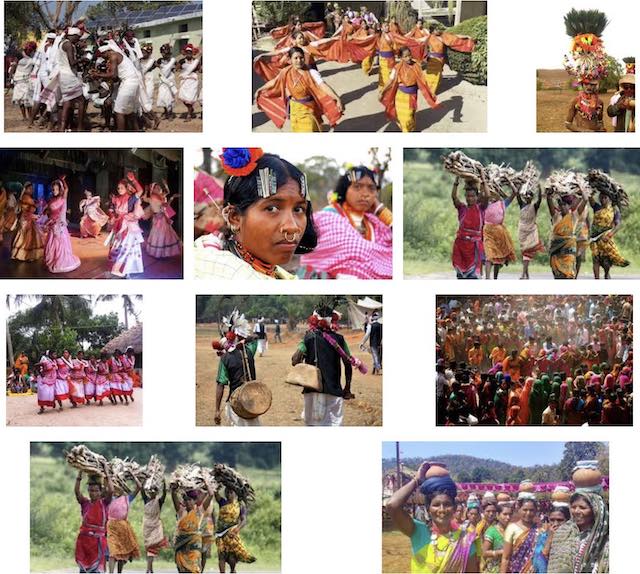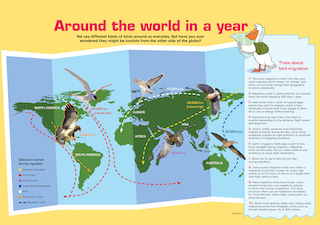To view the slideshow published, click here >>
Isolated from the polluted urban life, the Dongaria-Kondh tribe of Niyamgiri hills can at last breathe a sigh of relief. On 28th February 2005 British mining company, Vedanta Resources and the Orissa State Government intended on converting 660.749 ha of pristine land into a giant bauxite mine for its refineries at the foothills of the mountains. On 24 Aug 2010, the Environment Ministry formally rejected the forest clearance for mining in Niyamgiri.
Source: “Saving the tribe”, The Hindu, Aug 24, 2010,
Address: https://www.thehindu.com/news/national/Saving-the-tribe/article16144478.ece/photo/1/
Date Visited: 6 February 2022
“Even though they are responsible for protecting the largest part of the global forest heritage […] a third of indigenous and community lands in 64 countries are under threat due to the lack of land tenure rights.” – Pressenza Rio de Janerio in “Indigenous people are heading to CoP26: ‘There is no solution to the climate crisis, without us‘” (Down To Earth) | Forest dwellers in early India – myths and ecology in historical perspective by Romila Thapar >>
Up-to-date reports by Indian experts and journalists
Search tips
Combine the name of any particular state, language or region with that of any tribal (Adivasi) community.
Add keywords of special interest (music, poetry, dance just as health, sacred grove and biodiversity); learn about the rights of Scheduled Tribes such as the “Forest Rights Act” (FRA); and the United Nations “Declaration on the Rights of Indigenous Peoples”, “Universal Declaration of Human Rights”, “women’s rights”, or “children’s right to education”.
Ask a question that includes “tribal” or “Adivasi”, for instance: “Adivasi way of life better?” (or “tribal way of life worse?”)
Specify any particular issue or news item (biodiversity, bonded labour and human trafficking, climate change, ecology, economic development, ethnobotany, ethnomedicine, global warming, hunter-gatherers in a particular region or state, prevention of rural poverty, water access).
For official figures include “scheduled tribe ST” along with a union state or region: e.g. “Chhattisgarh ST community”, “Himalayan tribe”, “Scheduled tribe Tamil Nadu census”, “ST Kerala census”, “Particularly Vulnerable Tribal Group Jharkhand”, “PVTG Rajasthan”, “Adivasi ST Kerala”, “Adibasi ST West Bengal” etc.
In case the Google Custom Search window is not displayed here try the following: (1) toggle between “Reader” and regular viewing; (2) in your browser’s Security settings select “Enable JavaScript” | More tips >>
Note: hyperlinks and quotes are meant for fact-checking and information purposes only | Disclaimer >>
List of websites covered by this Google custom search engine
Academia.edu (platform for academics to share research papers) – www.academia.edu
Archive.org – https://archive.org
Centre for Science and Environment – https://www.cseindia.org
Current Conservation – https://www.currentconservation.org
Development and Cooperation (D+C) https://www.dandc.eu
Down To Earth (India) – www.downtoearth.org.in
India Environment Portal – www.indiaenvironmentportal.org.in
Harnessing Nature Magazine – https://harnessingnature.online
Mongabay-India – https://india.mongabay.com
M S Swaminathan Research Foundation – www.mssrf.org
Navdanya (protecting India’s biodiversity based food heritage) – https://navdanya.org
Third World Network (Penang, Malaysia) – https://twn.my
The Shola Trust (nature conservation in the Nilgiri region) – www.thesholatrust.org

Indian online periodicals and platforms | Images view >>
~ ~ ~
Personalize your CustomSearch by combining other search words >>
(e.g. name of a tribal community and region, a craft, or dance and puppetry)
Research the above issues with the help of Shodhganga: A reservoir of theses from universities all over India, made available under Open Access >>
Note: hyperlinks and quotes are meant for fact-checking and information purposes only | Disclaimer >>
For additional learning resources visit the website of the Centre for Science and Environment (CSE), “a public interest research and advocacy organisation based in New Delhi”:
Communication for Awareness
CSE’s publications and informational products have been its strength and they have always combined research and readability to get the message across.

CSE’s tools for awareness raising are periodicals, publications, films/short spots, briefing papers, exhibitions, posters and other products. CSE’s informational products reach people in more diverse ways such as features service, website and e-news bulletins. […]
Source: About CSE
URL: https://www.cseindia.org
Date Visited: 10 July 2022
Related posts
Biodiversity | Hyderabad biodiversity pledge
Climate change | Audio | The Climate Question (BBC Podcast)
Forest Rights Act (FRA) | Hunter-gatherers | Legal rights over forest land
Human Rights Commission (posts) | www.nhrc.nic.in (Government of India)
India’s Constitutional obligation to respect their cultural traditions
Misconceptions | “Casteism” and its effect on tribal communities
People’s Archive of Rural India (PARI) | RuralIndiaOnline.org
People’s Linguistic Survey of India | Volumes (PLSI)
United Nations on climate change >>
What is the Forest Rights Act about?
Who is a forest dweller under this law, and who gets rights?